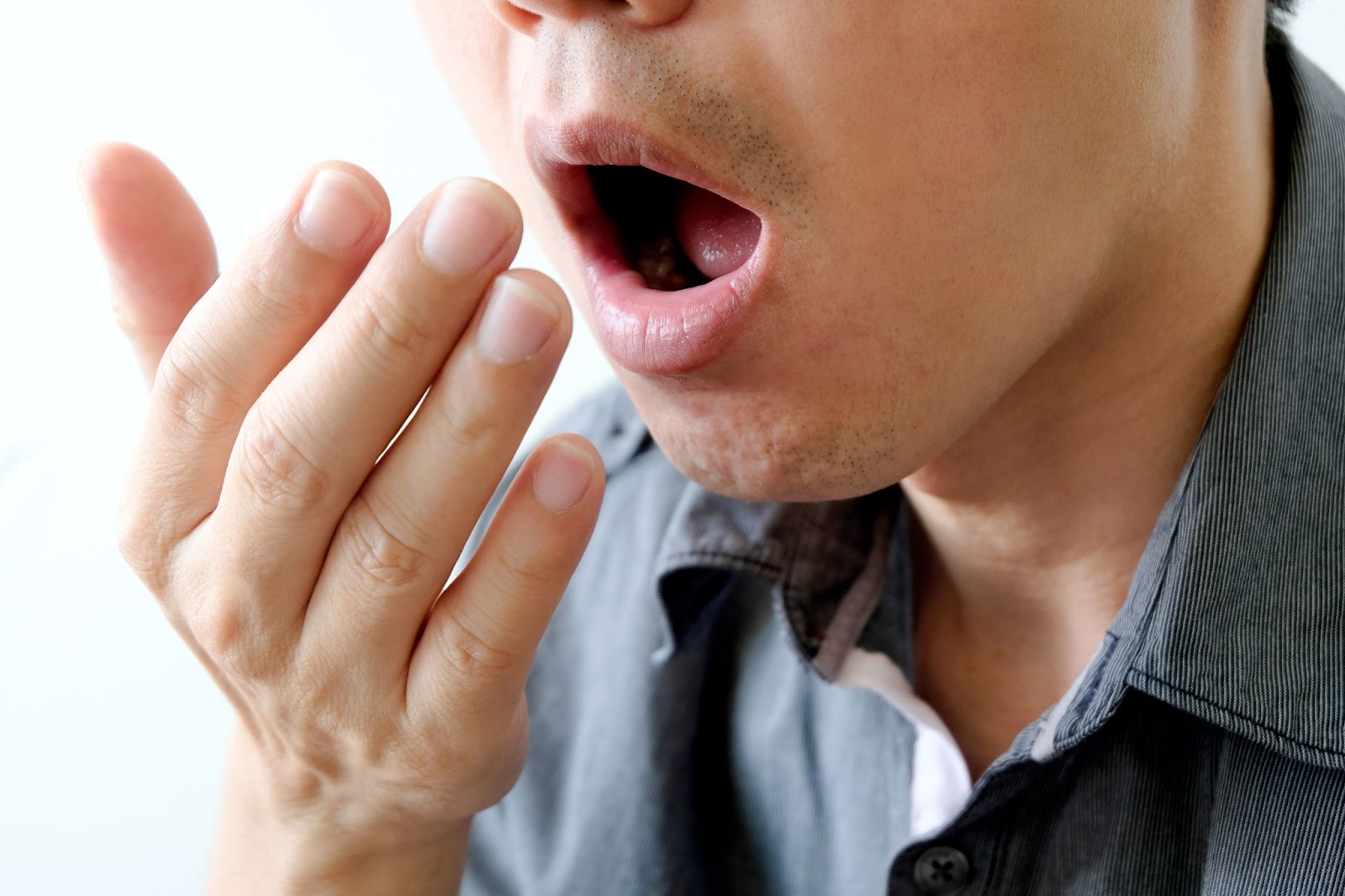Causes of Bad Breath: Do You Have It?

Have you ever noticed an unpleasant smell that seemed to be coming from you? Perhaps someone silently took you aside to mention that your breath is a problem. No matter how you became aware of it, bad breath is nothing short of an embarrassing situation. It isn’t something you can hide or mask forever. What you need is a real solution. Understanding the causes of bad breath can help.
Let’s talk about the reasons for bad breath, also known as halitosis, and what you can do to eliminate it. Whether it’s a chronic problem or something that only bothers you now and again, there is hope. This is a treatable — and preventable — condition.
What Causes Bad Breath? Poor Dental Hygiene
No one wants to believe their hygiene practices are ineffective or somehow lacking. The truth is, if food is not cleaned away through brushing and flossing, a build-up of bacteria, also known as plaque, can form on the teeth and gums. This can lead to gingivitis and, worse, periodontitis. This will produce an odour. Regular brushing and flossing are required to keep inflammation and disease at bay. Sometimes if the plaque is left for a long time, it can harden and become tartar. The tartar also produces a distinct odour and can only be safely removed by a dental professional.
Strong Foods and Beverages
Some foods, like onions and garlic, are inherently strong and will produce an odour, although it’s not permanent. Other foods, like curries, pickled items, pepperoni, and chilli sauces are also potent enough to cause bad breath. As these foods are digested, certain elements are carried from the blood to the lungs, where they can affect your breath.
Other culprits include low-carb diets or diets high in sugar. A low-carb regime such as the Keto diet is a high-fat diet. As the fats are broken down, chemicals called ketones are produced and have a strong aroma. High sugar diets can also cause bad breath, as bacteria in the mouth naturally feed off the sugar and produce odours.
Beverages such as coffee or alcoholic drinks can also have an effect. These beverages can cause a decrease in saliva production — dry mouth or xerostomia — which creates the perfect environment for bacteria to thrive.
Smoking
If you’ve ever smoked a cigarette, a cigar, or used another product such as chewing tobacco, you know the taste lingers in your mouth for quite a while. This causes bad breath and can have a negative effect on your gums, potentially causing gum disease.
We all know that cigarettes are bad for health, but the long-term use of chewing tobacco also leads to an increased risk of heart disease and stroke. In addition, these smokeless products contain sugars and other irritants that can cause staining, cavities, bad breath, bone loss around the roots, tooth abrasion, and loss.
Infections In Your Mouth
Infections can result from tooth decay, gum disease, or mouth sores. Inflammation in the nose, throat, and sinuses can also contribute to bad breath.
Mouth, Nose, and Throat Conditions
Bacteria-covered stones can form on the tonsils, another cause of bad breath. Poor digestion, constipation, or bowel disorders can contribute as well. If you frequently experience acid reflux, unpleasant odours from consumed foods can make their way up the esophagus and exit the mouth in the form of halitosis.
Foreign Body
This is more common in children, where small food particles are placed inside the nostrils and left there. The result is food decay, causing an unpleasant odour or bad breath.
Periodontal Disease
Also called gum disease, this is a severe disease that damages the soft tissue and can destroy the bone that supports your teeth. The first stage of this disease is gingivitis, which is treatable and can be cured. Subsequent stages, called periodontitis, can be slowed down, but not reversed. Poor hygiene is the cause. This usually requires professional intervention to correct. Periodontal disease is one of the most common causes of bad breath and once it’s effectively treated, the bad breath is also cured.
What To Do If You Have Bad Breath
Other causes of bad breath can include health issues such as diabetes, postnasal drip, respiratory/sinus infections, kidney and liver problems, and blood disorders. If you’ve been practising good oral hygiene and still experience halitosis, visit your healthcare practitioner to see if there’s an underlying health issue.
Summary
We’ve discussed the most common reasons for halitosis. By implementing a solid, consistent routine of brushing, flossing, and using interdental brushes, many of the issues causing the problem can be eliminated. For more severe health problems, a consultation with your doctor and dentist can help uncover a problem you didn’t expect. We’d love to help you on this journey toward more excellent oral health. Please click here to book an appointment with our office.



